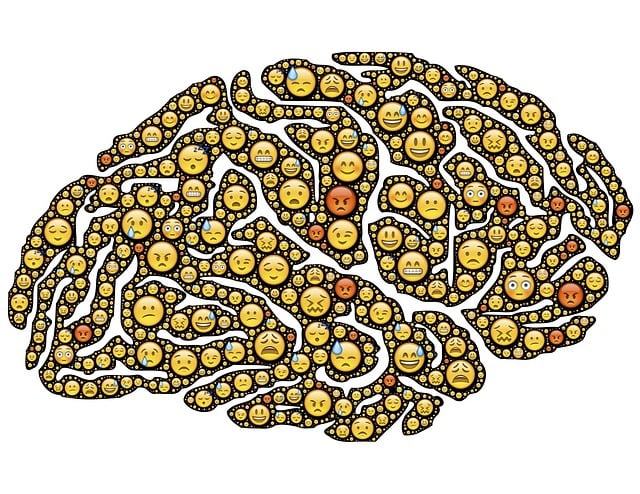Stress management is a critical component of treating neuro disorders, as highlighted by Littleton Neuro Disorders Therapy (LNT). Chronic stress exacerbates conditions like anxiety and depression, affecting daily functioning. LNT offers evidence-based workshops providing immediate relief and long-lasting coping strategies through mindfulness and time management techniques. These tailored sessions empower individuals, reduce risk factors for professionals, and advocate for mental health policy changes. The success of these workshops at LNT demonstrates their transformative potential in improving mental wellness and daily lives for neurodisorder sufferers.
“Stress management workshops have emerged as powerful tools for individuals dealing with neuro disorders, offering a holistic approach to mental well-being. This article explores the transformative potential of such workshops in Littleton, focusing on their ability to mitigate stress and its profound impact on neuro health.
We’ll delve into the science behind stress, its connection to neuro disorders, and how tailored workshops can effectively manage symptoms. Additionally, we’ll provide practical insights for designing and implementing successful therapy sessions.”
- Understanding Stress and its Impact on Neuro Disorders
- The Role of Workshops in Stress Management
- Designing Effective Stress Management Workshops
- Implementing and Evaluating Workshop Success in Littleton
Understanding Stress and its Impact on Neuro Disorders

Stress is a complex response to various internal and external factors, impacting our physical and mental well-being. It can manifest as a short-term adaptive mechanism or evolve into a prolonged state, significantly affecting our health, especially in individuals with neuro disorders. Littleton Neuro Disorders Therapy recognizes that understanding stress is crucial in managing these conditions effectively. Chronic stress can exacerbate symptoms of anxiety, depression, and other neurological issues, hindering daily functioning.
The impact of stress on the brain is profound, influencing neurotransmitter systems and neural pathways. Public Awareness Campaigns Development initiatives and Mental Illness Stigma Reduction Efforts play a vital role in educating people about healthy stress management. By promoting Stress Reduction Methods, these campaigns aim to empower individuals to recognize their stress triggers and implement coping strategies. This proactive approach can lead to improved mental health outcomes and enhanced quality of life for those dealing with neuro disorders.
The Role of Workshops in Stress Management

Workshops play a pivotal role in stress management by offering structured and interactive platforms that facilitate learning and skill development. They provide individuals with practical tools and techniques to navigate stressful situations effectively. Through engaging activities, participants gain insights into their emotional responses and learn strategies like mindfulness, relaxation techniques, and time management. These practices not only help in the immediate relief of stress but also equip individuals with long-lasting coping mechanisms.
In the context of Littleton Neuro Disorders Therapy, workshops can be tailored to address specific challenges faced by individuals dealing with mental illness or neurodisorders. Topics such as self-esteem improvement, fostering mind over matter principles, and mental illness stigma reduction efforts can be incorporated. By participating in these sessions, individuals can enhance their resilience, boost self-confidence, and cultivate a more positive outlook, ultimately leading to improved well-being and quality of life.
Designing Effective Stress Management Workshops

Stress management workshops are powerful tools to empower individuals and organizations alike. Designing effective sessions requires a holistic approach, considering both individual needs and broader organizational contexts. At our Littleton Neuro Disorders Therapy center, we’ve found success by integrating evidence-based practices tailored to diverse audiences. This includes strategies for mental health professionals looking to enhance their resilience against burnout, as well as techniques for employees aiming to prevent depression and manage stress in the workplace.
Beyond immediate coping mechanisms, workshops should address underlying systemic issues. Incorporating topics like risk assessment for mental health professionals and mental health policy analysis and advocacy ensures a comprehensive approach. By fostering open dialogue and providing practical tools, these workshops not only mitigate individual stress but also contribute to a broader culture of mental wellness, reflecting the latest findings in depression prevention research.
Implementing and Evaluating Workshop Success in Littleton

In Littleton, the successful implementation of stress management workshops has been a game-changer in addressing neuro disorders therapy. These workshops go beyond simply providing knowledge; they offer practical tools and techniques tailored to enhance mental well-being. Participants engage in activities like Self-Care Routine Development for Better Mental Health, Social Skills Training, and Self-Awareness Exercises, fostering an inclusive environment that encourages open communication and personal growth.
The evaluation of workshop success is thorough and multifaceted. Feedback from participants plays a crucial role, highlighting the impact on their daily lives and overall stress levels. Additionally, measuring improvements in social interactions and self-management skills through both quantitative and qualitative methods ensures that the workshops are effectively meeting the unique needs of individuals seeking Littleton Neuro Disorders Therapy. This comprehensive approach not only enhances workshop effectiveness but also solidifies their position as a vital resource for better mental health.
Stress management workshops play a pivotal role in empowering individuals, especially those dealing with neuro disorders, to take control of their well-being. As seen in the successful implementation in Littleton, these workshops offer a structured approach to understanding and mitigating stress, leading to improved mental health outcomes. By combining education, practical techniques, and community support, they provide a holistic pathway to resilience. Incorporating evidence-based strategies tailored to neuro diversity, these programs have the potential to revolutionize stress management, offering hope and enhanced quality of life for those navigating Littleton Neuro Disorders Therapy.








